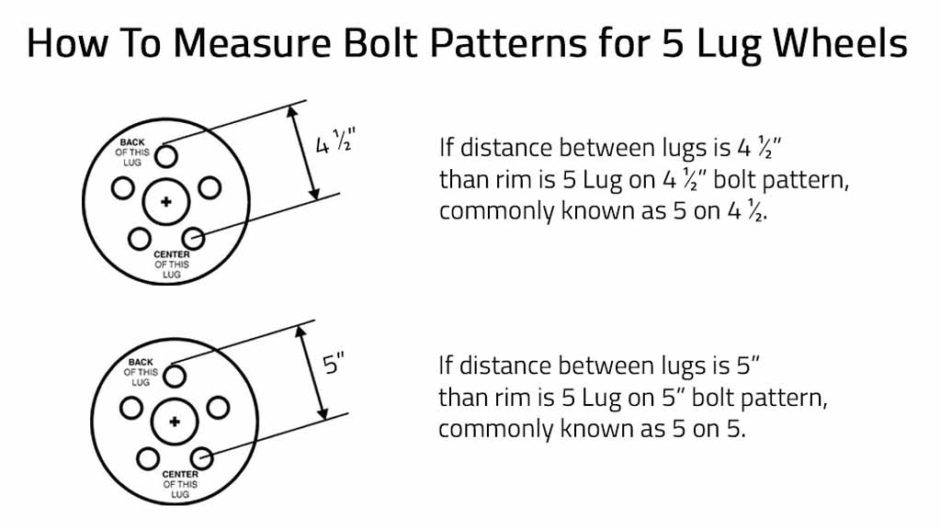
Ever stared at your trailer tires, a creeping sense of uncertainty gnawing at you? You *think* you know what size they are, but deep down, a nagging voice whispers, "Are you sure?" This guide is for you. We're diving deep into the surprisingly intricate world of trailer tire rim sizing, equipping you with the knowledge to banish tire-related anxieties forever.
Imagine this: you're on a cross-country road trip, the open road stretching before you, your trailer packed with all your precious cargo. Suddenly, a tire blows. You pull over, heart sinking, only to discover you don't have the correct spare. Knowing how to identify your trailer tire rim size is the first line of defense against this nightmare scenario. It's about more than just avoiding a roadside breakdown; it's about safety, peace of mind, and maximizing your trailer's performance.
Let's face it, tires aren't exactly the most glamorous topic. But beneath their rubbery exterior lies a crucial component of your trailer's functionality. The right rim size ensures proper tire fit, affecting everything from load capacity and fuel efficiency to handling and braking. A mismatch can lead to premature wear, reduced performance, and even dangerous blowouts.
Historically, determining trailer tire rim size was a bit of a black art, passed down through generations of trailer owners like whispered secrets. But fear not, the days of cryptic markings and guesswork are over! This guide will demystify the process, providing you with clear, concise instructions and helpful tips.
Before we delve into the how-to, let's clarify what we mean by "rim size." This term encompasses several key measurements: diameter, width, and bolt pattern. The diameter is the distance across the rim, measured in inches. The width, also in inches, is the distance between the rim flanges. The bolt pattern refers to the arrangement of the lug holes used to attach the wheel to the trailer hub.
Measuring the diameter is relatively straightforward. Locate the markings on the rim, often stamped near the valve stem. You should see a number followed by an "x" and another number, such as "15x6." The first number, in this case, "15," indicates the diameter in inches.
Determining the width and bolt pattern requires a bit more effort. For the width, again refer to the markings on the rim. In our "15x6" example, "6" represents the width in inches. The bolt pattern can be determined by counting the number of lug holes and measuring the distance between them.
Benefits of Knowing Your Trailer Tire Rim Size:
1. Safe travels: Correctly sized tires ensure optimal load capacity and handling, reducing the risk of blowouts and accidents. 2. Enhanced performance: The right tires contribute to better fuel efficiency and smoother towing. 3. Prolonged tire life: A proper fit minimizes wear and tear, extending the lifespan of your tires.
Step-by-Step Guide:
1. Locate the markings on the rim.
2. Identify the diameter (e.g., 15).
3. Determine the width (e.g., 6).
4. Count the lug holes and measure the distance between them to establish the bolt pattern.Advantages and Disadvantages of Measuring Yourself
| Advantages | Disadvantages |
|---|---|
| Saves a trip to a tire shop | Potential for inaccurate measurement |
FAQ:
1. What if I can't find the markings on the rim? Consult your trailer's owner's manual or a tire professional.
2. Do I need to measure the bolt pattern? Yes, it's essential for ensuring proper wheel fitment.
3. Can I use a different size tire on my trailer? Consult a tire professional to determine safe and appropriate tire sizes for your trailer.4. What tools do I need to measure trailer rim size? A tape measure is generally sufficient.
5. Why is it important to know the correct tire size? It ensures safety, optimal performance, and proper tire wear.
6. Where can I find more information about trailer tires? Check reputable tire manufacturer websites or consult a tire professional.
7. How often should I check my trailer tire pressure? Before each trip and regularly during long journeys.
8. What is the difference between a radial and bias-ply trailer tire? Radial tires offer better fuel efficiency and handling, while bias-ply tires tend to be more durable.
Tips and Tricks: Use a flexible tape measure for accurate width measurements. Clean the rim to ensure clear visibility of the markings.
In conclusion, knowing how to measure trailer tire rim size is an essential skill for any trailer owner. It empowers you to make informed decisions about tire replacement, ensures safe and efficient towing, and ultimately contributes to a more enjoyable and worry-free travel experience. Don't rely on guesswork; take the time to measure your rims accurately. It's a small investment of time that can pay off big in the long run. By understanding the key measurements of diameter, width, and bolt pattern, you gain control over your trailer's performance and safety. Armed with this knowledge, you can confidently hit the road, knowing that you've taken a crucial step towards preventing tire-related issues and ensuring a smooth, successful journey. So, grab your tape measure, inspect those rims, and unlock the peace of mind that comes with knowing your trailer is properly equipped for the adventures ahead.
Hawthorne yellow living room sun kissed style
Decoding medicare part b deductibles your guide
Unlocking fifa 25 domination budget beasts 87 rated players













